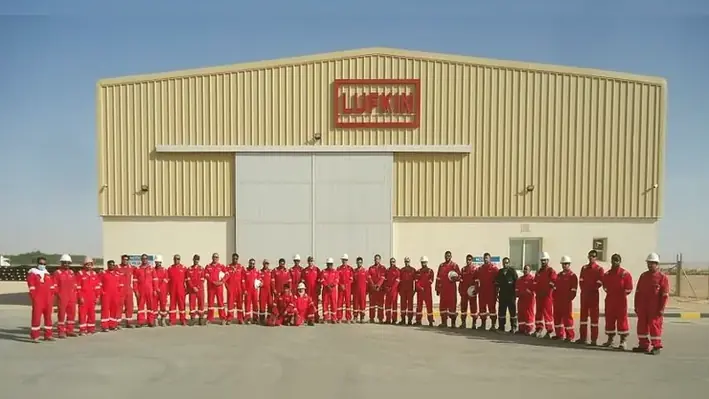

Lufkin Industries has secured a multi-year performance contract from Petroleum Development Oman (PDO) to supply rod driven progressive cavity pumping systems across the Marmul-Rahab-Thuleilat-Qaharir fields.
The award covers operations in the Marmul and RTQ areas and reinforces Lufkin’s long-standing role in supporting PDO’s production optimisation strategy.
The company will deliver high-performance rod driven progressive cavity pump (RDPCP) equipment, along with installation, workover and life-of-well support services.
The latest contract builds on a partnership that began in the early 2000s.
Over two decades, Lufkin has expanded its footprint in Oman’s artificial lift market, installing more than 2,000 rod lift systems and maintaining a record of zero non-productive time during new well deployments and replacements, according to company data.
Average pump run life for its PCP systems in the country has exceeded 760 days.
Brent Baumann, chief executive officer of Lufkin Industries, said the agreement reflects the strength of the company’s collaboration with PDO and a shared focus on long-term field performance.
He noted that the firm’s approach extends beyond equipment supply to include service integration, engineering support and localisation initiatives aligned with Oman’s production objectives.
PDO representatives described Lufkin as a high-performing partner capable of delivering in challenging operating conditions while contributing to the development of in-country expertise.
Craig Guillory, vice president of international sales and operations at Lufkin, said the company’s field teams have built trust through technical consistency and close cooperation with PDO.
He added that the Marmul and RTQ scope represents both recognition of past results and a responsibility to maintain high standards in future operations.
A key component of the contract is Lufkin’s continued commitment to In Country Value. The company reports that 87% of its field workforce in Oman are Omani nationals.
It has also invested in local infrastructure to support equipment deployment, maintenance and optimisation services.
Beyond operational delivery, Lufkin has collaborated with PDO on technical research, including published papers and conference presentations addressing advances in remote-controlled RDPCP systems and pump optimisation strategies.
These initiatives have aimed to enhance well performance and extend asset life.
The newly awarded scope includes new well installations, workovers and long-term optimisation support, forming part of PDO’s broader strategy to sustain output from mature fields.
With production targets remaining a priority, the Marmul-RTQ contract is expected to play a significant role in maintaining efficiency and reliability across the operator’s southern assets.
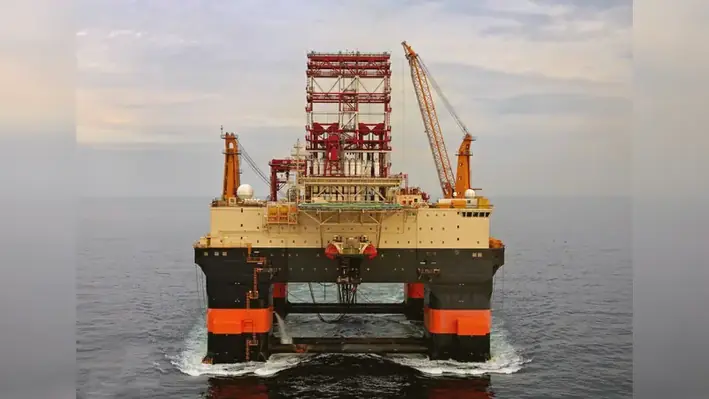
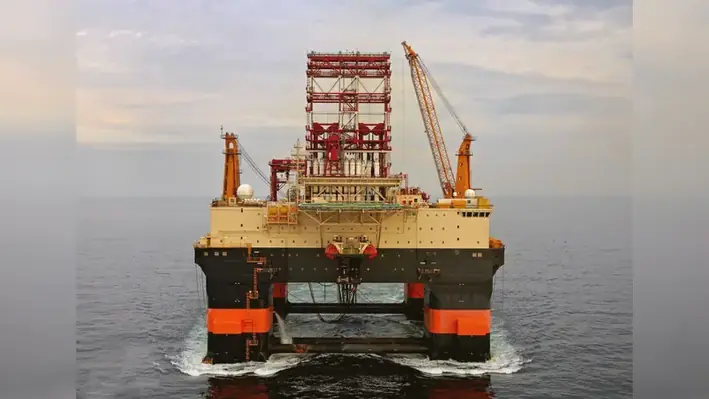 Saipem has strengthened its position in the Middle East after securing a new offshore contract in Saudi Arabia valued at approximately US$500mn.
Saipem has strengthened its position in the Middle East after securing a new offshore contract in Saudi Arabia valued at approximately US$500mn.
The award comes in the form of a Contract Release Purchase Order under the company’s existing Long Term Agreement with Saudi Aramco.
The project centres on the Safaniya oil field, recognised as one of the largest offshore oil fields in the world. Under the agreement, Saipem will carry out the Engineering, Procurement, Construction and Installation of a 48 inch trunkline stretching around 65 kilometres offshore and a further 12 kilometres onshore. The development will also include associated subsea facilities designed to support ongoing production and long term field performance.
Offshore activities will be handled by Saipem’s construction vessels that are already operating in the region, ensuring continuity and operational efficiency. Meanwhile, fabrication work will take place at Saipem Taqa Al Rushaid Fabricators Co. Ltd. in Dammam. This local yard continues to play a key role in strengthening the company’s industrial presence within the Kingdom and supporting domestic capability.
The Safaniya field remains central to Saudi Arabia’s energy infrastructure, and this latest contract reflects the Kingdom’s ongoing investment in maintaining and enhancing offshore production capacity. By combining local expertise with established engineering knowledge, Saipem aims to deliver a project that meets strict safety, quality and environmental standards.
This award not only expands Saipem’s project portfolio in Saudi Arabia but also deepens its longstanding relationship with Aramco. Over the years, the company has built a strong track record in delivering complex offshore developments across the region.
With construction set to move forward using both regional assets and technical experience, Saipem continues to demonstrate its ability to execute large scale offshore projects efficiently while supporting the broader development of strategic energy infrastructure in Saudi Arabia.
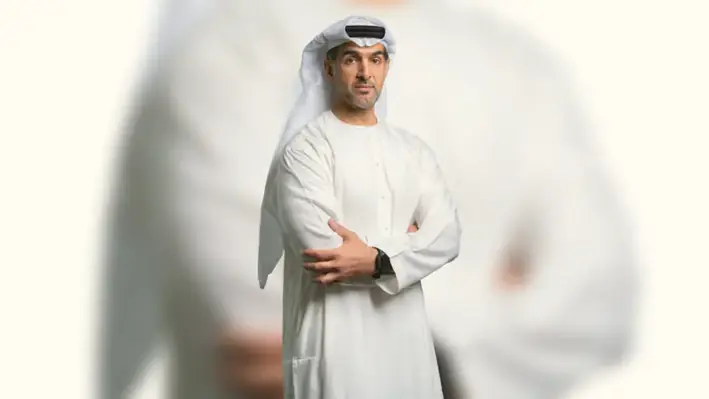

Mubadala Energy has completed the acquisition of a 15% participating interest in the Nargis Offshore Area concession from Eni, strengthening its footprint in Egypt’s offshore gas sector.
The Nargis concession is an offshore exploration block located in the Mediterranean Sea and is considered a high-potential asset within the East Nile Delta Basin.
The transaction marks a further expansion of Mubadala Energy’s portfolio in Egypt and underlines its strategy of investing in core gas-producing regions.
Following the deal, Eni retains a 30% contractor interest in the concession through its subsidiary, IEOC.
The block is operated by Chevron, which holds a 45% contractor interest, while Tharwa Petroleum Company owns the remaining 10% stake.
The concession operates under a partnership structure with the Egyptian Natural Gas Holding Company (EGAS), with the contractor group and EGAS each holding a 50% interest.
Mansoor Mohammed Al Hamed, managing director and chief executive of Mubadala Energy, said the acquisition reinforces the company’s long-term commitment to Egypt and broadens its exposure to what he described as a high-impact growth opportunity in the strategically significant Eastern Mediterranean region.
“The acquisition of a 15% interest in the Nargis Concession further reinforces our long-term commitment to Egypt, expanding our portfolio with a high-impact growth opportunity alongside world-class partners in the strategically important East Med region,” he said.
The Nargis block lies approximately 50 km offshore in the prolific East Nile Delta Basin and includes the Nargis-1 discovery, which was made in early 2023.
The find has attracted industry attention as part of wider exploration success in the Mediterranean waters offshore Egypt.
The concession is adjacent to the Nour block, also operated by Eni, in which Mubadala Energy acquired a 20% stake in 2018.
In addition to its interests in Nargis and Nour, Mubadala Energy holds a 10% stake in the Shorouk concession, which is home to the producing Zohr gas field, also operated by Eni.
The latest acquisition further consolidates Mubadala Energy’s position in Egypt’s offshore gas landscape, aligning with its broader strategy to expand its international gas portfolio and support long-term energy supply from established basins in the Eastern Mediterranean.
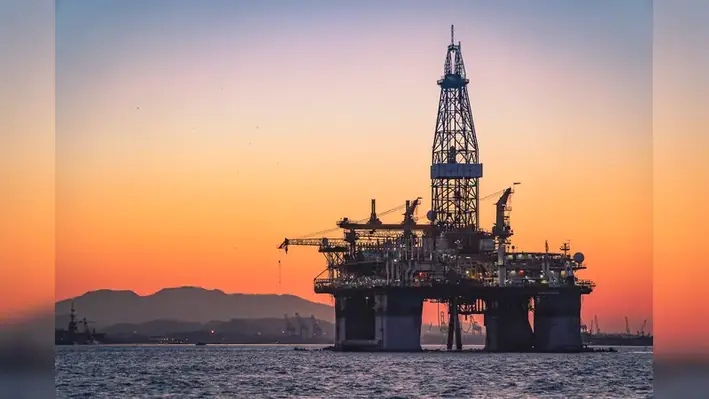
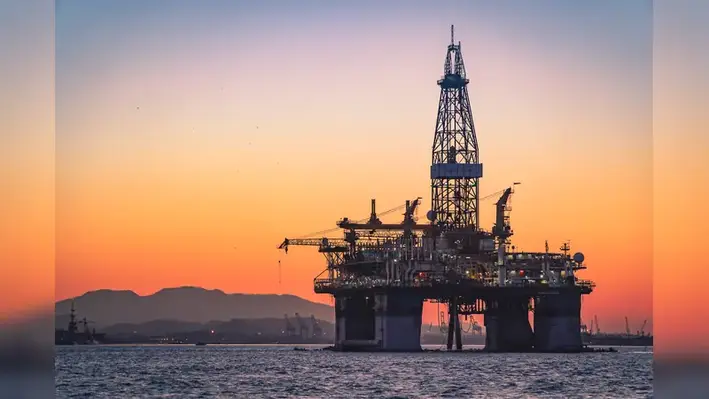 Syria has taken a significant step towards reviving its energy sector after signing a landmark agreement to develop its first offshore oil and gas field.
Syria has taken a significant step towards reviving its energy sector after signing a landmark agreement to develop its first offshore oil and gas field.
The memorandum of understanding was signed this week between the Syrian Petroleum Company, US energy major Chevron, and Qatar based Power International Holding.
The signing took place in Damascus and was attended by senior officials, including the US special envoy to Syria, Tom Barrack. According to Syria’s state news agency SANA, the agreement focuses on offshore exploration and the development of oil and gas resources within Syria’s territorial waters. It also aims to encourage wider investment and long term growth across the country’s energy sector.
The deal marks Syria’s first formal move into offshore energy exploration and reflects the government’s efforts to attract foreign partners and rebuild hydrocarbon production after years of decline. Youssef Kabalawi, CEO of the Syrian Petroleum Company, said, “Before the summer, God willing, we will start mobilization and drilling.”
He added that reaching the gas reserves could take up to four years, underlining the long term nature of the project.
Syria’s oil and gas industry has suffered severely due to nearly fifteen years of conflict, which resulted in widespread damage and the loss of hundreds of thousands of lives. Before unrest began in 2011, oil production stood at around 380,000 barrels per day, with exports generating more than $3 billion in 2010. At that time, oil revenues made up roughly a quarter of the government’s budget.
Recent developments may improve the outlook. Syrian government forces regained control of large areas in the north east and oil rich eastern regions last month, potentially opening the door to renewed exploration in some of the country’s most valuable energy zones.
Since coming to power in December 2024 after the removal of Bashar Assad, Syria’s new authorities have prioritised economic recovery. The offshore agreement with Chevron and Power International Holding signals a clear intention to rebuild the energy sector and re establish Syria as a regional player in oil and gas development.
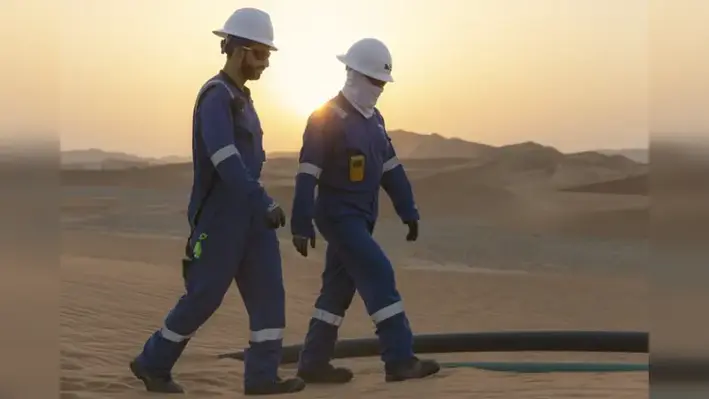
 Advanced technologies and solutions from SLB are set to help drive production efficiency and maximise recovery at Oman’s largest oil and gas concession.
Advanced technologies and solutions from SLB are set to help drive production efficiency and maximise recovery at Oman’s largest oil and gas concession.
Petroleum Development Oman (PDO) has awarded SLB two five-year contracts for the supply of wellheads and artificial lift technologies for operations in Block-6, which contains over 75% of Oman's remaining crude oil reserves.
The contracts include the provision of low-pressure, high-pressure, and thermal wellheads, as well as electric submersible pumps (ESPs) and progressive cavity pumps (PCPs). These solutions are expected to increase recovery rates and extend the productive life of Block-6 assets. The contracts will involve expanding local manufacturing capabilities and introducing made-in-Oman gate valve production within six months of commencement.
The contracts align with PDO’s ICV programme, which is a strong priority for PDO and supports the country’s industrial diversification under Oman Vision 2040. It has played a vital role in expanding local manufacturing capabilities, strengthening local supply chains, upskilling the workforce and creating jobs for Omani nationals.
“These awards reflect our deep commitment to Oman’s energy future and advancing in-country value through local manufacturing and talent development,” said Jesus Lamas, president, Middle East and North Africa, SLB. “By producing more equipment in country and investing in Omani expertise, we are ensuring that PDO’s strategic goals are met with sustainable, locally driven approaches. Our focus is on delivering innovative wellhead and artificial lift solutions that drive production efficiency and maximize recovery. Through our ongoing investment in advanced technologies and tailored services, we support our customers’ production and recovery goals with capabilities designed to meet their evolving operational needs.”
Wellheads will be produced at SLB’s Rusayl production center, and ESPs will be assembled at its Nizwa assembly, repair, and testing center, supporting hundreds of Omani employees. SLB will deploy advanced technologies including the 15k SOLIDrill modular compact wellhead system, ESP surveillance systems, and ESP permanent magnet motors, which reduce power consumption and enhance sustainability.
In its Fourth Quarter 2025 results, SLB comments that industry is prioritising production and recovery.
“As economics remain challenged, production and recovery activity is becoming a strategic priority for our customers in order to unlock incremental barrels at the lowest cost,” said CEO Olivier Le Peuch.” This is translating into higher demand particularly for intervention services, artificial lift, production chemicals and SLB OneSubsea.”
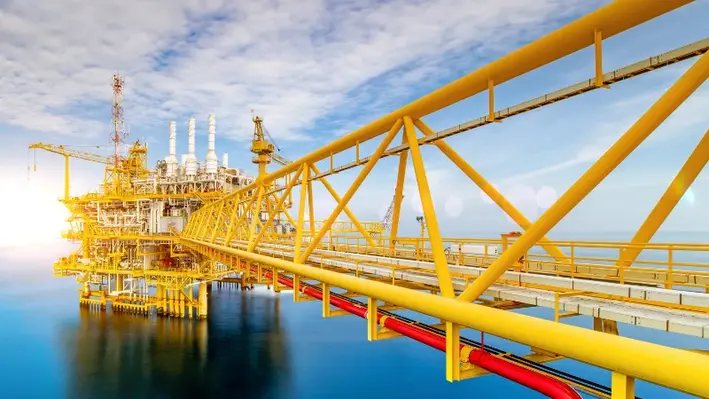

Rex International Holding Limited, through its indirect subsidiary, Masirah Oil Limited (MOL), has announced the signing of a jack-up rig contract to support offshore development drilling in Oman.
According to the statement, MOL’s parent company, Rex Oman Ltd., has contracted the Energy Emerger jack-up drilling rig, operated by Northern Offshore Drilling Operations Ltd. The rig will be used to drill three development wells in the offshore Yumna Field, located in Block 50, Oman.
The Energy Emerger was previously deployed during MOL’s 2024 drilling campaign and will now be utilised for a multi-well programme scheduled to commence in March 2026. The upcoming campaign is intended to support increased production and enhance long-term field performance.
MOL is an indirect 87.5% subsidiary of Jasmine Energy Limited (JEL) and acts as the operator of Block 50, holding a 100% interest in the licence.
Commenting on the development, Mike Hopkinson, General Manager of Masirah Oil Limited, said, “With funding and the rig now in place, we are focused on executing this drilling programme seamlessly to drill new producer wells to increase oil flow rates and extend the lifespan of the Yumna Field in Block 50 Oman.”
The drilling programme forms part of Rex Group’s ongoing efforts to optimise production from its Omani offshore assets through targeted development activity.
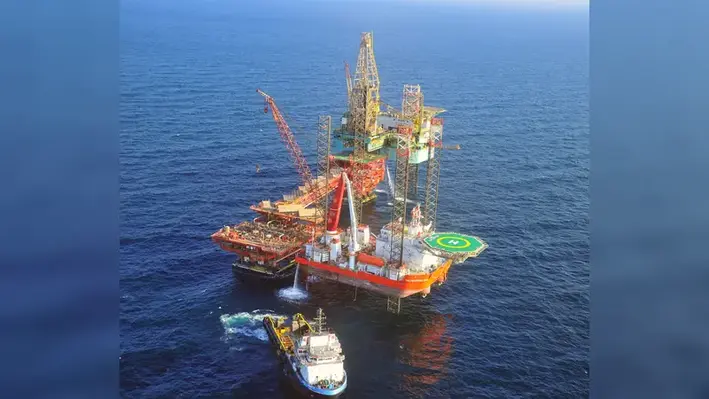
 Gulf Marine Services (GMS), a provider of jack-up support vessels to the offshore energy industry, has agreed to acquire a new mid-class self-propelled, self-elevating support vessel, marking its first vessel acquisition in a decade.
Gulf Marine Services (GMS), a provider of jack-up support vessels to the offshore energy industry, has agreed to acquire a new mid-class self-propelled, self-elevating support vessel, marking its first vessel acquisition in a decade.
The vessel is expected to join the company’s fleet of 14 vessels within the next two weeks and is intended to support GMS’ strategy of doubling its 2024 adjusted EBITDA by 2030. The acquisition was partly financed through a US$37.4million 90-day interim loan provided by a Middle Eastern bank that is part of the company’s existing lending syndicate, pending participation by the remaining lenders. The remainder of the purchase price was funded from the company’s cash resources.
GMS said the cost of funding and covenant terms are consistent with those agreed with lenders in December 2024. Following completion, the group’s net leverage will remain below 2.0 times, excluding any EBITDA contribution from the acquired vessel. The company said the vessel has been earmarked for a number of identified commercial opportunities, with further announcements on backlog and revised adjusted EBITDA guidance for 2026 to be made in due course.
“We are delighted to announce this acquisition and would like to thank all those involved. This represents the first vessel acquisition by GMS in a decade and marks an important milestone for the company. The addition of this vessel supports our growth ambitions, while preserving our financial strength and operational flexibility. Subject to market conditions, we look forward to pursuing further acquisitions, and to commencing our shareholder reward programme in the coming months,” said Mansour Al Alami, executive chairman of GMS.
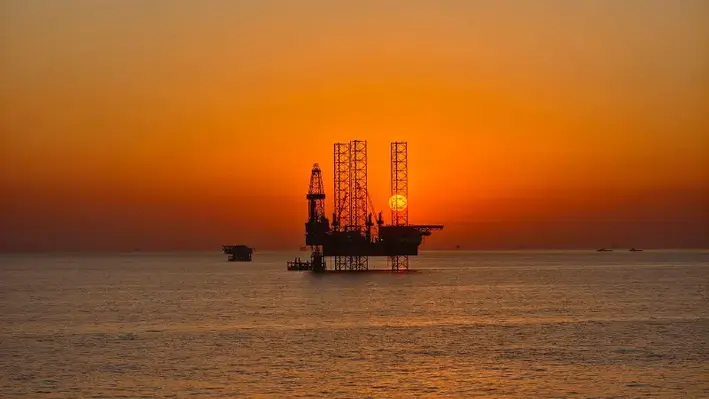
 McDermott has been awarded a major contract with ADNOC for the engineering, procurement, construction and installation services for the Nasr-115 Expansion Project located offshore Abu Dhabi.
McDermott has been awarded a major contract with ADNOC for the engineering, procurement, construction and installation services for the Nasr-115 Expansion Project located offshore Abu Dhabi.
The Project acts as a critical component for the overall Nasr Phase II Full Field Development which is expected to increase oil production capacity to 115,000 bpd by 2027.
The scope of work McDermott is expected to provide includes comprehensive EPCI services for two topside structures, one new manifold tower, one jacket, one bridge and all associated pipelines, cables and brownfield modifications.
Mike Sutherland, McDermott’s Senior Vice President, Offshore Middle East, said, “McDermott shares ADNOC’s commitment to increase offshore production capacity and will do its part with safe, efficient delivery of the Nasr-11 Expansion Project to the highest quality standards. Our decades-long track record of delivering innovative, comprehensive solutions across complex offshore developments supports ADNOC’s vision for sustainable energy growth and to meet its capacity goals as part of the P5 Project.”
“This award underscores McDermott’s position as a trusted partner in executing large-scale infrastructure projects in the region. We are proud to further support development of the UAE’s energy sector in a safe and sustainable manner.”

 Aberdeen-based Decom Engineering has signed a Memorandum of Understanding with UAE-headquartered Unique Group to jointly deliver an integrated package of subsea decommissioning services in major oil and gas regions, including the Middle East and APAC countries.
Aberdeen-based Decom Engineering has signed a Memorandum of Understanding with UAE-headquartered Unique Group to jointly deliver an integrated package of subsea decommissioning services in major oil and gas regions, including the Middle East and APAC countries.
Unique, a global subsea technology and engineering leader, has a global footprint spanning 18 locations and has 30 years experiences working across the oil and gas, renewables and subsea sectors, while Decom has a strong reputation for designing and deploying field-proven mechanical cutting and removal tools that reduce costs and improve safety performance during high-risk infrastructure removal operations.
Unique will provide subsea engineering expertise, project management and offshore operational support to align with Decom’s proprietary Chopsaw cutting, tooling and technical expertise in decommissioning. Decom will have equipment storage space at Unique’s global facilities, ensuring assets are strategically positioned for quicker deployment to client projects. In addition to supporting engineering design and operational planning, Decom will collaborate on training and knowledge transfer initiatives.
Commenting on the strategic alliance, Decom Engineering Managing Director, Nick McNally, said, “The MoU allows us to jointly provide a full decommissioning workstream across subsea cutting, recovery operations, engineering support, operational planning, personnel deployment, and equipment sharing.
“From a commercial standpoint, operators increasingly expect a turnkey model - a single point of accountability - and this partnership is designed to meet that demand without comprising our respective reputations for high-level delivery on complex projects.
“For operators facing tightening budgets, ageing subsea assets, and increasing regulatory attention - including tighter emissions-reduction commitments - an integrated solution like this could prove highly appealing.”
Ross Anderson, Regional Manager, Decommissioning, at Unique Group, added, “By combining Unique Group’s global subsea engineering and offshore execution expertise - now further enhanced by our recent major investment in subsea decommissioning tooling, controlled Mass Flow Excavation systems, and back deck equipment - with Decom Engineering’s specialist cutting and removal technologies, we are positioned to deliver integrated, high performance decommissioning solutions that are tailored to our clients’ exact requirements.”
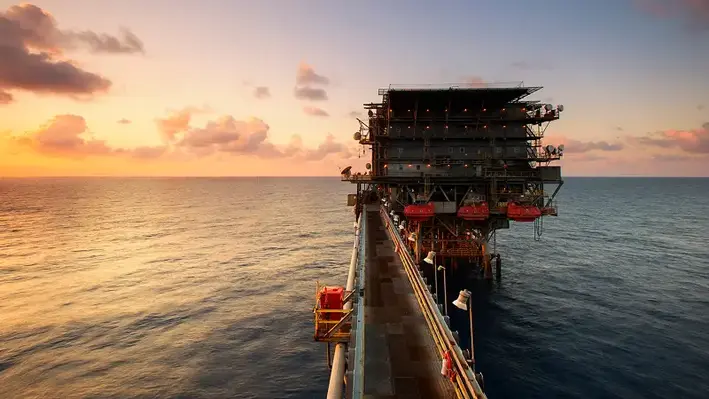

Gulf of Suez Petroleum Company (GUPCO) has commenced production from the Al-Wasl-4 development well at the North Safa Field, marking a further boost t crude oil output from one of the Gulf of Suez region’s most important recent offshore discoveries.
The well, drilled from the field’s offshore production platform, has an initial production rate of around 2,250 barrels of crude oil per day, alongside approximately 1.3mn cubic feet of gas per day. As a result, GUPCO’s total crude oil production has risen to roughly 65,000 barrels per day, strengthening Egypt’s upstream output from mature offshore assets.
In a statement issued on Tuesday, Egypt’s Ministry of Petroleum and Mineral Resources said the start-up reflects GUPCO’s ongoing strategy to maximise value from its asset base through an integrated development approach. This includes drilling new exploratory and development wells, re-evaluating geological structures and leveraging remaining potential within mature producing fields.
The Al-Wasl-4 well is among the flagship projects within GUPCO’s 2026 development plan, having been prioritised following encouraging technical and geological studies. According to the ministry, these assessments confirmed the commercial viability of the well and its role in sustaining and expanding production from the North Safa Field.
North Safa is regarded as one of the most significant offshore discoveries in the Gulf of Suez in recent years. Commercial production from the field began in 2024 after GUPCO completed a major development programme that included the installation of a new offshore production platform and the laying and connection of subsea production pipelines. The project was executed in line with stringent occupational safety, health and environmental protection standards, the ministry added.
Alongside bringing new wells on stream, GUPCO is also advancing an integrated reservoir pressure maintenance programme designed to support long-term production sustainability. The programme involves water injection across three wells, aimed at maintaining reservoir pressure, optimising recovery rates and enhancing overall production efficiency.
Preparations are already under way for the second phase of development at North Safa, with reservoir performance data from current operations expected to inform future drilling and production plans. The ministry noted that the company’s focus remains on balancing short-term production gains with long-term field management, particularly in offshore environments where maximising recovery from existing infrastructure is critical.
The latest production milestone underscores the continued importance of the Gulf of Suez as a core oil-producing region, even as operators increasingly rely on advanced studies and targeted development to unlock additional value from established fields.
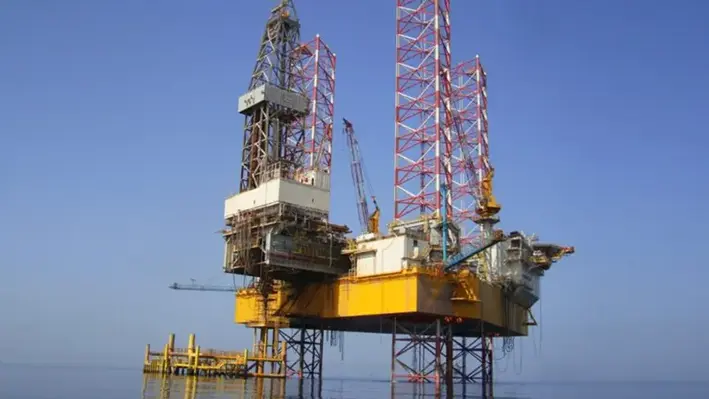
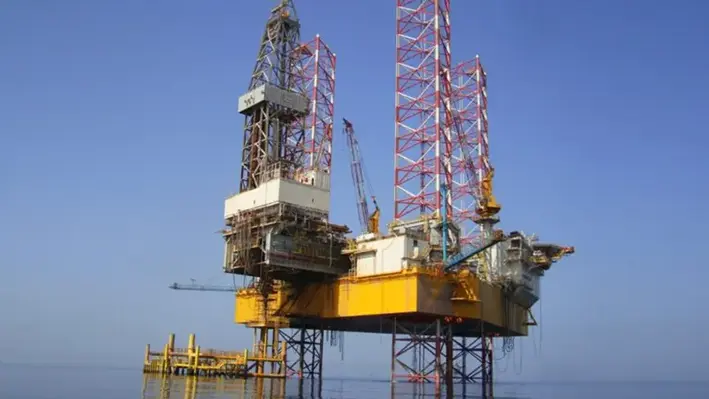 Italian engineering and energy services giant Saipem has confirmed plans to restart operations on its Perro Negro 7 jackup rig in Saudi Arabia, marking a positive signal for the recovery of offshore drilling activity in the Middle East.
Italian engineering and energy services giant Saipem has confirmed plans to restart operations on its Perro Negro 7 jackup rig in Saudi Arabia, marking a positive signal for the recovery of offshore drilling activity in the Middle East.
The rig is scheduled to resume work in January 2026 after a temporary suspension.
Originally built in 2008, the Perro Negro 7 operates under a long-term contract awarded by Saudi Aramco in 2011. This agreement was extended in June 2023 for an additional 10 years, underlining Aramco’s continued confidence in Saipem’s offshore capabilities. Operations were paused for a 12-month period in 2024, but Saipem confirmed that the suspension will be fully recovered at the end of the contract, extending its duration until 2034.
Designed for challenging offshore environments, the jackup rig is capable of operating in water depths of up to 115 metres and drilling wells reaching 9,100 metres. It is equipped with advanced technologies that enhance operational efficiency, workplace safety and environmental compliance, aligning with increasingly stringent industry standards.
Saipem views the restart of Perro Negro 7 as a clear indication of renewed momentum in Middle East offshore drilling, a region the company continues to prioritise as a strategic growth market. The move reflects broader industry trends pointing to rising upstream investment and sustained demand for high-specification offshore rigs across the Gulf.
With Saudi Arabia pushing ahead with energy development plans, Saipem’s resumed operations further reinforce its position as a key player in the region’s offshore oil and gas sector.
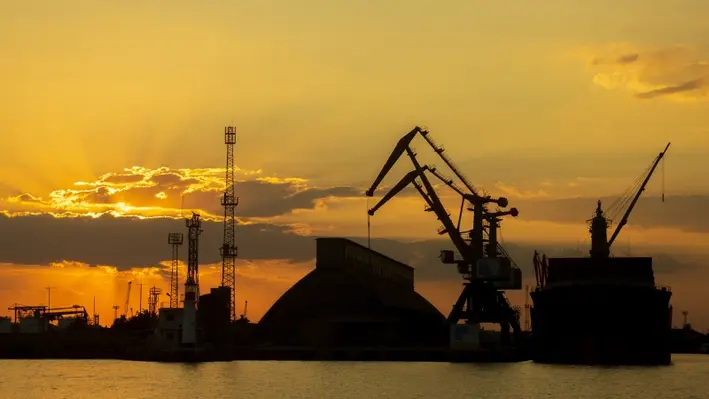

Saipem, a global engineering and construction leader, has been awarded two offshore contracts in Saudi Arabia worth a combined US$600mn under its existing Long-Term Agreement with Saudi Aramco.
The first contract, CRPO 162, spans 32 months and covers the engineering, procurement, construction, and installation (EPCI) of around 34 km of 20” and 30” pipelines, along with related works on topside structures at the Berri and Abu Safah oil fields.
The second contract, CRPO 165, runs for 12 months and includes subsea interventions at the Marjan field, as well as the EPC of 300 m of onshore pipeline and associated tie-ins. Saipem said it will deploy its construction vessels already operating in the region to execute the offshore work.
Fabrication for both projects will take place at Saipem’s Saudi facility, Saipem Taqa Al-Rushaid Fabricators Co. Ltd. in Dammam, a move designed to further develop local industry capabilities.
Saipem said the contract awards reinforce its position in Saudi Arabia and strengthen its long-term partnership with Aramco.
This latest project is part of Saipem’s broader strategy to expand its regional footprint, leveraging both local fabrication and offshore expertise to deliver complex oil and gas infrastructure efficiently.
Page 1 of 13
Copyright © 2026 Offshore Network